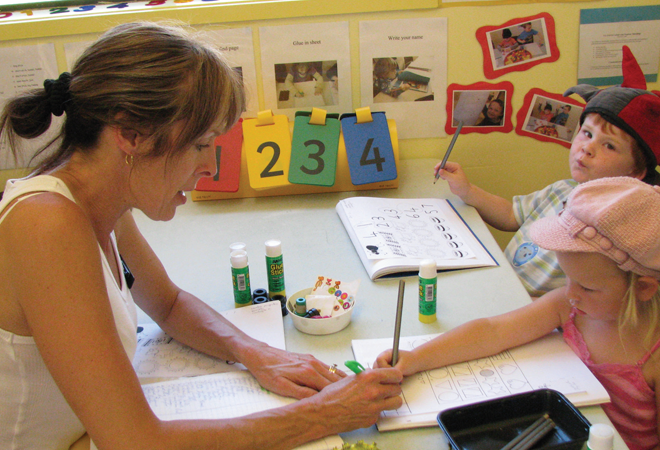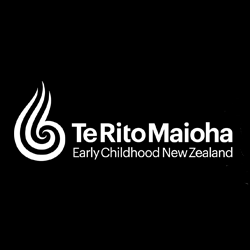
Teaching Practice Experiences of Year One Early Childhood Student Teachers in a Field-Based Teacher Education Programme
Status
Completed: 30 January 2009
Project Details
A project completed in 2009, undertaken by Te Tari Puna Ora a Aotearoa/New Zealand Childcare Association, to generate teaching practice narratives from stage one early childhood student teachers based on their experiences in a field-based teacher education programme.
Aims:
The main aims of the project were to identify how:
- effective mentoring teachers (including Associate Teachers) are in enabling students to strengthen their teaching practice
- teaching practice assessments conducted by the Visiting Lecturer contribute to students’ learning and to the strengthening of their teaching practice
- the regular setting of teaching goals contributes to students’ reflections on teaching
- effective the field-based teacher education model is in the application of theory in practice.
Methodology:
The project used a mixed methods approach, which involved:
- a review of the literature
- generating narratives from stage one student teachers through conducting small focus group interviews
- qualitative and quantitative analysis of data.
Team

Caterina Murphy
Project Leader
Te Tari Puna Ora a Aotearoa/New Zealand Childcare Association
Jenny Butcher
Te Tari Puna Ora a Aotearoa/New Zealand Childcare AssociationStatus
Funding
$8,000.00 (excl GST)
Key Findings
The key findings from the project are categorised under the four research question themes and included:
Relationships
- Seven out of the eleven participants (64%) reported a positive practicum experience and eight out of the eleven (72%) reported numerous positive aspects associated with their relationship with the Associate Teacher (AT).
- Students had clear expectations of their AT; some were disappointed these expectations were not met. Their expectations included: how the role of the AT would be filled (performance) and what the relationship was going to be like (communication and availability).
- The research findings show that students require support through practicum regardless of their age and experience, especially students with English as a second language. Students perceived practicum as an important and challenging opportunity to trial learning in a new context.
- There is a need for cultural considerations to be made when there are difficulties. Māori and Pasifika students particularly, may not want to articulate their dissatisfaction with an aspect of assessment or when there are difficulties in the relationship with the AT.
Assessment
- At the time of the study, students had experiences of at least four teaching practice assessments, either in their usual centre or their practicum centre. Five out of 11 (46%) student teachers voiced positive experiences with their Visiting Lecturers (VL) during assessment. Twenty-eight per cent of the responses were neutral in regard to assessment questions.
- Several students in each focus group were disappointed when their expectations were not met. At times, students viewed the Visiting Lecturer’s interpretations of assessment criteria as too rigid, particularly the expectations of speaking te reo Māori when context did not support meaningful language application. This alerts to a need to ensure that Visiting Lecturers benefit from teaching practice assessment critique.
Goal setting
- There was a mixed reaction to the setting of goals in order to strengthen teaching practice. Students identified a number of different approaches to goal setting with three out of the eleven students (27%) describing it as a positive experience. Others in the cohort took either a neutral or not so positive view towards the relevance of it.
- In their teaching programme students are required to set teaching goals at the beginning of each paper and link these goals to teaching criteria developed during the programme. Students articulated many positive benefits such as: developing strategies to vary their practice, pushing themselves beyond the boundaries; focusing on an aspect of their practice which required strengthening; progressing own practice through the regular setting of new goals.
Field- based Teacher Education
- There is a desperate need for more data from field-based practice. The research findings in regards to the effectiveness of field-based teacher education emphasise students’ perceptions of the benefits of such delivery. All of the students across both focus groups reported that studying in a field-based programme was a positive experience (100%).
- Students believed that field-based teacher education provides real opportunities to build relationships with the early childhood community and makes links between learning and practice.
- Five out of the eleven participants (46%) indicated that the delivery mode specifically helped them gain confidence and that they would not want to be in a class five-days a week. There is no doubt from the interviews, that students staying working and earning was a huge advantage to them and their families. This affirms the model as a sound apprenticeship model.
Key Recommendations
The key recommendations from the project included:
Annual induction programme | Associate Teachers access an annual induction programme offered by the teacher education providers that includes: roles and expectations; being a mentor and a role model; developing a teaching philosophy; guidelines on student observation and shared reflection; building collaborative and cultural relationships; engaging in effective professional discussions.
Mentoring of students | Teacher education providers consider how verification of the time given to mentoring to students is documented, to ensure consistency and equality among students and the monitoring of the responsibilities of the Associate Teacher.
Student support | Teacher education providers consider the support students require during practicum regardless of age and/or experience, especially ESOL and Māori/ Pasifika students and affirm communication pathways available to express concerns as they arise.
Assessment of student teachers | A credit-based approach is applied to the assessment of student teachers, celebrating their strengths while working towards meeting the Graduating Teacher Standards (NZTC) and identifying how practice can be further strengthened with particular strategies in mind;
Teaching report | Consideration is given to the teaching report to ensure strengths and achievements are identified and student teachers are involved in self-assessment during professional discussions
Professional development | Visiting Lecturers receive teaching practice assessment critique from a colleague/manager as part of their appraisal process, to contribute to their ongoing professional development.
Graduating Teacher Standards | Lecturers are consciously aware of taking time to extend and challenge student teachers to meet Graduating Teacher Standards (NZTC) and/or achieve higher goals, such as across different contexts and to guide and facilitate them in setting worthwhile teaching goals in the classroom environment.
Goal setting | Lecturers access specific professional development relating to guiding students in setting effective and achievable goals. Exemplars are used to develop a deeper level of understanding of the value and purpose of goal setting.
Field-based teacher education (FBTE) | The effectiveness of the FBTE model is acknowledged, not only as a delivery model, but also as a significant pathway for applying learning to practice, strengthening reflection in practice, developing students’ confidence in their teaching and strengthening community networks.
A research report by Caterina Murphy and Jenny Butcher.
(PDF, 436 KB, 14-pages).
- 30 January 2009